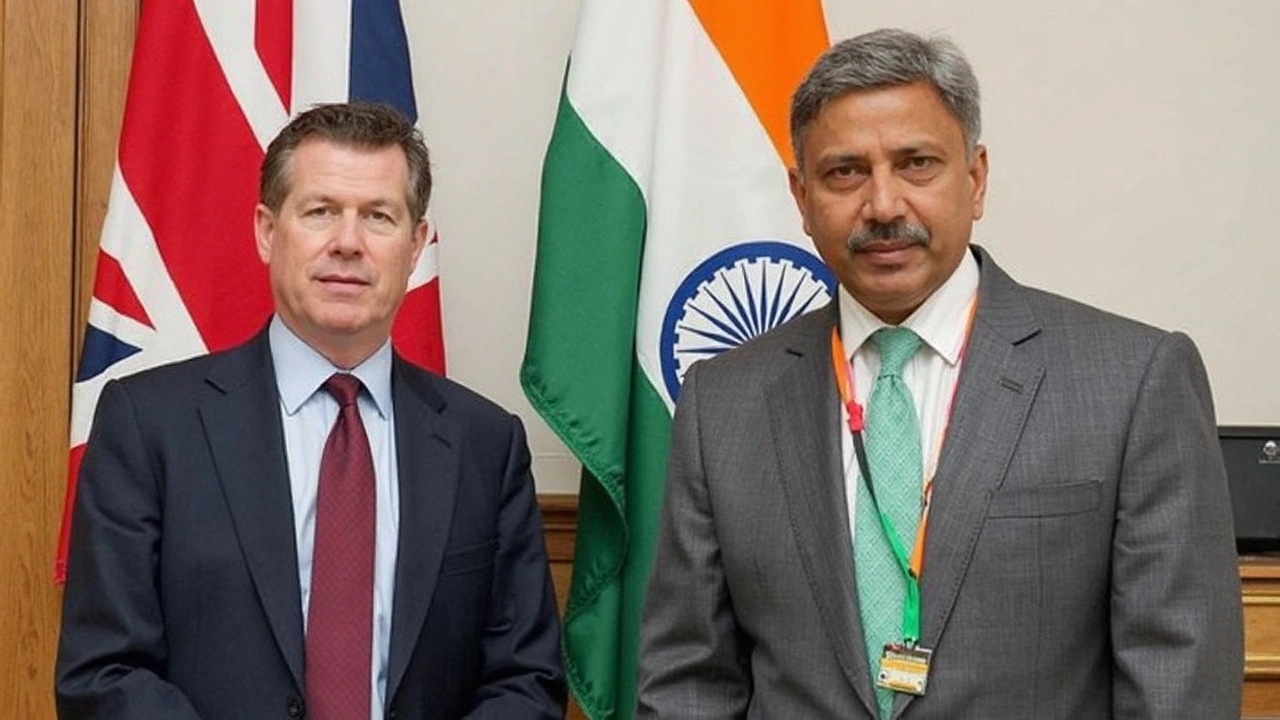India-UK FTA – What It Means for Indian Startups and Traders
India and the United Kingdom have just signed a free trade agreement that could change the way small firms do business across the two economies. If you run a tech startup, sell handmade goods, or plan to expand overseas, the deal packs a bunch of practical benefits you’ll want to know about right now.
Key Benefits for Indian Startups
First off, tariffs on many goods are set to drop or disappear altogether. That means a software‑as‑a‑service company in Bangalore can offer its platform to a UK client without worrying about hidden import taxes on hardware that supports the service. For product‑based startups, items like electronics, textiles, and even certain food products will enjoy lower duties, making your price tag more competitive in the UK market.
Second, the agreement simplifies customs procedures. You’ll get faster clearance, fewer paperwork hurdles, and clearer rules about documentation. In practice, this translates to less time waiting at ports and more cash flow for your business.
Third, the FTA opens up services trade. If you’re a fintech firm, a legal tech provider, or a digital marketing agency, you’ll now have easier access to the UK’s professional services market. The UK government has promised mutual recognition of qualifications, so your Indian certifications might be accepted without a lengthy re‑validation process.
Lastly, the deal encourages investment flows. UK venture capital firms are keen to tap into India’s fast‑growing startup scene, and the agreement gives them confidence that their investments won’t be hit by sudden policy changes. Expect to see more funding rounds that include UK investors.
What Businesses Need to Know
Understanding the rules is crucial. The India‑UK FTA outlines specific rules of origin – basically, a product must have a certain percentage of its value added in India to qualify for tariff relief. Keep clear records of where each component is sourced; a misstep can lead to unexpected duties.
Intellectual property protection also gets a boost. The UK has a strong IP regime, and the agreement ensures that Indian innovators can enforce their patents and trademarks more easily in the UK. If you’re developing a new gadget or app, consider filing for protection in both countries early.
Another practical tip: watch out for sector‑specific regulations. While many goods benefit from lower tariffs, sectors like agriculture, pharmaceuticals, and automotive have additional standards. Aligning your product with UK safety and labeling norms ahead of time will save you from costly redesigns.
Finally, stay updated on implementation timelines. The agreement is already signed, but certain chapters roll out in phases. Sign up for newsletters from the Ministry of Commerce and the UK Department for International Trade to get alerts on when specific benefits become active.
Bottom line: the India‑UK FTA is more than a headline. It gives startups a clearer path to the UK market, cuts costs, and opens doors for investment and collaboration. If you’re serious about scaling beyond India’s borders, start mapping out how these new rules fit into your growth plan today.
India-UK Free Trade Agreement Slashes Tariffs: What Gets Cheaper and Who Wins
India and the UK have finalized a Free Trade Agreement that will slash tariffs on whisky, cars, medical devices, and more. Indian exports get almost full tariff-free access to the UK, while UK products like cars and spirits become cheaper for Indian consumers. The deal is set to double bilateral trade and boost jobs.
India-UK FTA Talks Set to Resume: Leaders Aim for $120 Billion Trade Target
India and the UK are restarting FTA negotiations in February 2025, with top ministers meeting in Delhi to push a trade pact. Their goal: double trade to $120 billion by 2030, cut tariffs, boost key sectors, and ease rules for Indian workers in Britain.

